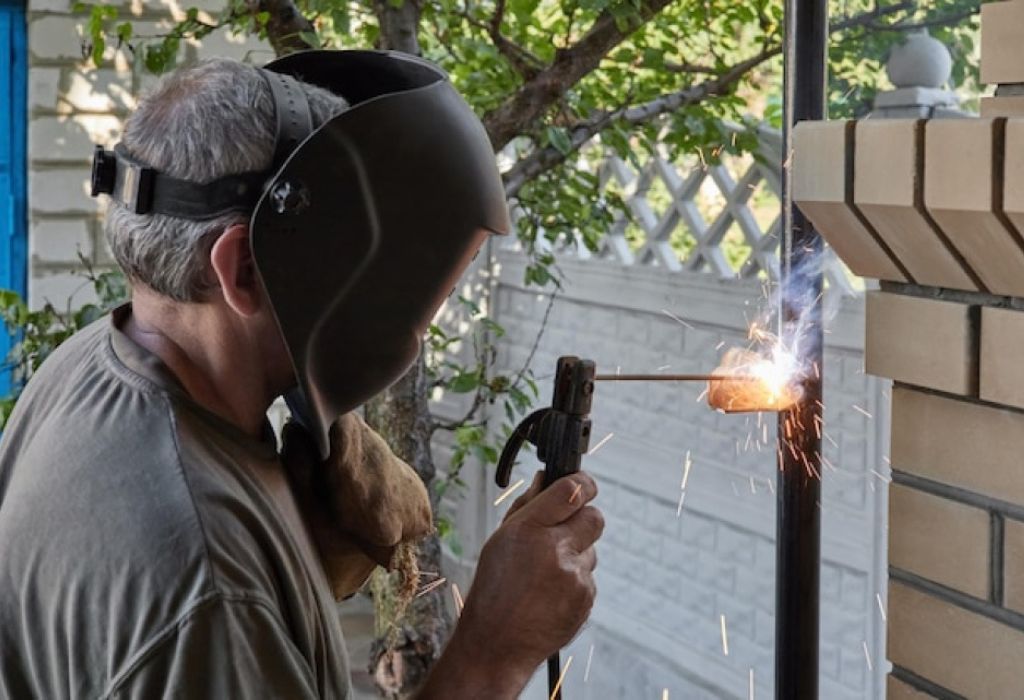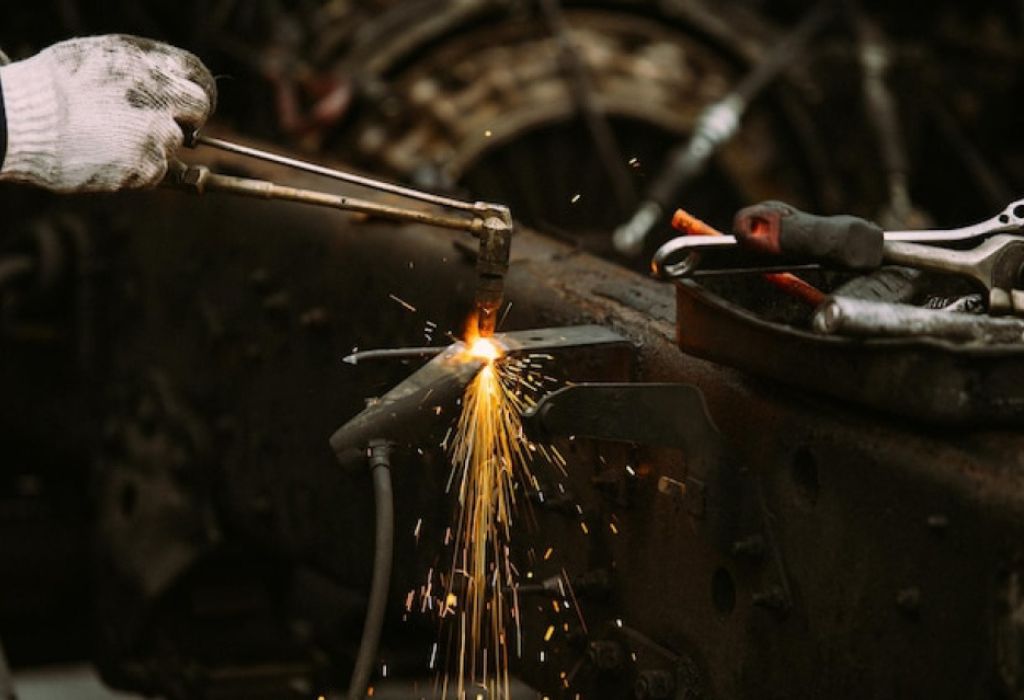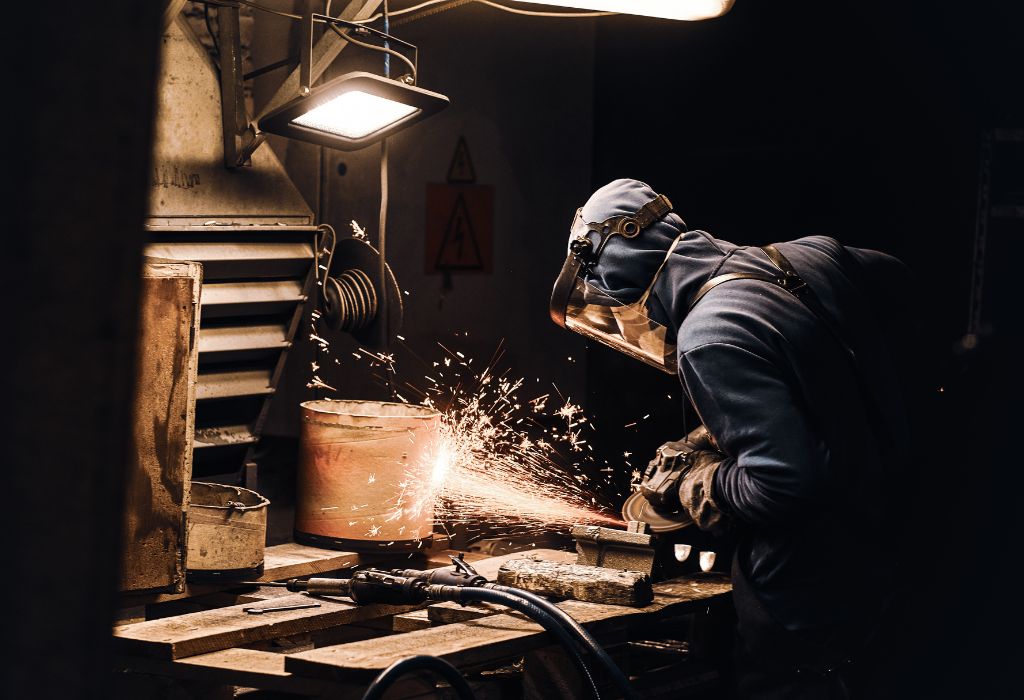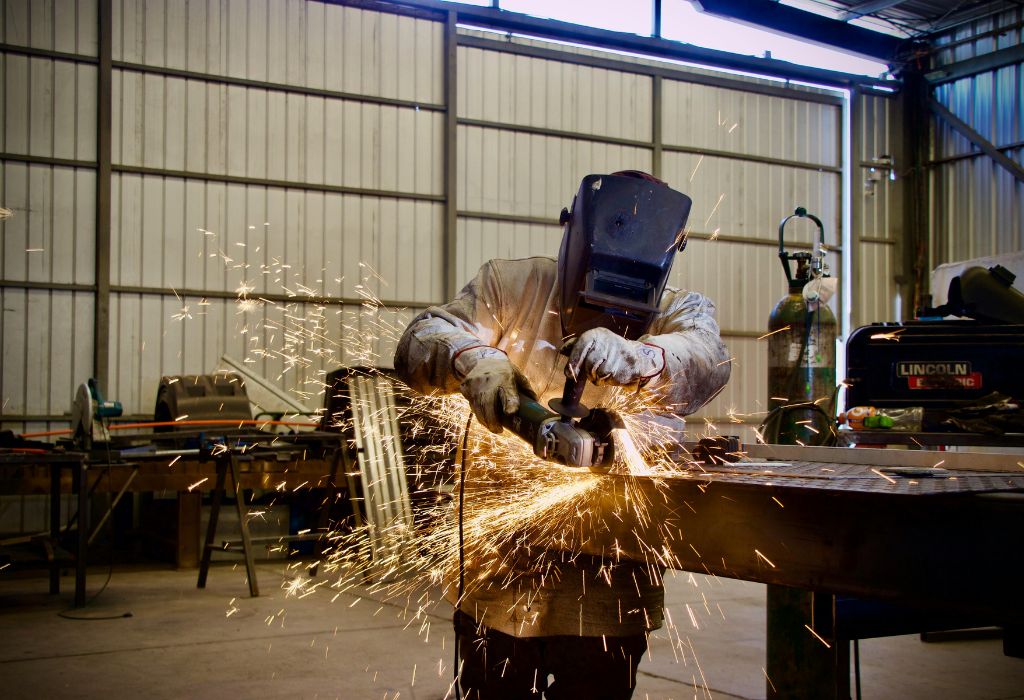The bright glow of a welding torch lights up a workshop in Tampa.
A student lays a steady bead for the first time, and in that spark begins a career with steady demand and lasting opportunities.
Many ask how to become a welder in Florida, and the path is clearer than it seems.
Florida is home to shipyards, construction projects, manufacturing plants, and even theme-park fabrication work.
Skilled welders are needed across these industries, and demand continues to grow. According to the U.S. Bureau of Labor Statistics, welders nationwide earn a median annual wage of about $51,000, with Florida averages typically around $23–$24 per hour depending on skill and sector source.
The appeal of welding goes beyond pay. It offers a hands-on career where skill matters more than long years in classrooms.
Unlike some trades that require state licensing, Florida does not mandate a statewide welder license. Instead, employers look for nationally recognized credentials such as the AWS Certified Welder or NCCER Welding certifications, which are performance-based and portable source.
The benefit of this system is flexibility. A motivated student can start with a welding technology program at a Florida technical college, move into an apprenticeship, and test for AWS qualifications in under a year. Others may pursue longer apprenticeships for deeper experience and higher earning potential.
This guide breaks down every step for how to become a welder in Florida.
From education and training options to certifications, costs, and career opportunities, it shows how to turn sparks into a long-term career in one of the state’s most in-demand trades.
Florida Snapshot — Do You Need a State License?

Florida does not require a statewide welding license, which surprises many newcomers. Employers instead rely on skill tests and nationally recognized certifications.
Is welding regulated by the state of Florida?
No, Florida does not issue a state welding license.
Who sets the welding standards in Florida?
Most employers use the American Welding Society (AWS) or National Center for Construction Education and Research (NCCER) standards.
Do you still need proof of skills?
Yes, employers require hands-on testing and certification cards for specific processes.
Are local permits or union cards necessary?
Some municipalities or unions may have their own requirements, but these are separate from statewide rules.
What does this mean for students?
Focus on training programs and portable certifications rather than state paperwork.
Education Pathways in Florida
Most welding careers in Florida begin with education. Technical colleges, trade schools, and community colleges all offer welding technology programs.
How long do welding programs take in Florida?
Most programs last 6–12 months for a certificate, or up to 2 years for an associate degree.
What subjects are taught in Florida welding schools?
Blueprint reading, safety, metallurgy, cutting, and welding processes like MIG, TIG, and Stick.
What are popular schools in Florida?
Examples include Tulsa Welding School (Jacksonville), Miami Dade College, and technical centers in Tampa and Orlando.
Do schools prepare you for AWS certification?
Yes, many programs align their training directly with AWS standards.
What about online welding classes?
Theory can be online, but hands-on welding requires in-person labs.
Welding Certifications That Employers Demand
Employers in Florida want welders with credentials that prove their skill. The most widely recognized are AWS certifications.
What is the AWS Certified Welder credential?
A performance-based test proving you can weld to specific code requirements.
Are there other certifications besides AWS?
Yes, NCCER Welding credentials are also accepted in Florida’s construction and industrial sectors.
Do employers test welders on-site?
Often yes, even certified welders must demonstrate skills before hiring.
Can certifications be earned during school?
Yes, many Florida programs include AWS or NCCER testing as part of graduation.
Do certifications expire?
Some require renewal or proof of continued work every 6 months.
Apprenticeships and On-the-Job Training
While schools provide a foundation, apprenticeships sharpen skills in real-world conditions. Florida has both union and non-union opportunities.
How long do welding apprenticeships last?
Typically 3–4 years, combining paid work with classroom training.
Where are apprenticeships available?
Shipyards, construction companies, fabrication shops, and unions like the Ironworkers or Boilermakers.
Do apprentices get paid in Florida?
Yes, wages start lower but increase with experience and skill.
Can apprentices earn certifications while training?
Yes, many programs cover testing fees for AWS or NCCER certifications.
Is apprenticeship required to become a welder in Florida?
Not required, but it greatly improves job prospects and pay.
Costs of Becoming a Welder in Florida
The cost of becoming a welder in Florida varies by program and certifications.
How much do welding programs cost in Florida?
Tuition ranges from $4,000 to $15,000, depending on the school and program length.
What about equipment and gear?
Students often purchase helmets, gloves, jackets, and tools, adding about $500–$1,000.
Are financial aid and scholarships available?
Yes, many technical colleges accept Pell Grants and offer industry scholarships.
Do employers ever cover training costs?
Some companies sponsor apprenticeships or reimburse certification fees.
Is welding school worth the cost?
Yes, with median wages of $23–$24 per hour in Florida, costs can be recovered quickly.
Florida Welding Job Market and Salary
Florida’s economy creates steady demand for welders across industries.
What is the average welder salary in Florida?
Around $48,000 annually, with higher pay for specialized or hazardous work.
Which industries hire welders in Florida?
Construction, shipbuilding, aerospace, manufacturing, and theme-park fabrication.
Are welders in demand in Florida?
Yes, growth is steady due to infrastructure projects and skilled worker shortages.
Where are the best-paying cities?
Jacksonville, Miami, Tampa, and Orlando typically offer higher wages.
Do certifications affect salary?
Yes, certified welders earn more than uncertified workers.
Specialized Welding in Florida

Beyond basic welding, Florida welders can specialize in high-demand niches.
What is underwater welding?
A specialized career combining diving with welding, used in Florida shipyards and offshore rigs.
Is pipe welding common in Florida?
Yes, pipeline and industrial facility construction creates strong demand.
What about aerospace welding?
Florida’s aerospace sector needs welders for precision TIG welding on aircraft parts.
Do theme parks hire welders?
Yes, for building rides, sets, and structures at attractions like Disney and Universal.
How do welders move into specialized fields?
By earning advanced certifications and gaining on-the-job experience.
Steps to Become a Welder in Florida (Checklist)
A clear roadmap helps aspiring welders succeed in Florida.
Step 1: Finish high school or earn a GED.
Step 2: Enroll in a Florida welding program.
Step 3: Earn AWS or NCCER certifications.
Step 4: Complete an apprenticeship or entry-level job.
Step 5: Gain experience and specialize for higher pay.
Conclusion
Learning how to become a welder in Florida opens doors to a rewarding trade with strong demand. Florida does not require a state license, but employers value AWS and NCCER certifications backed by hands-on training.
With flexible programs, affordable tuition, and a wide range of industries hiring, aspiring welders can move from classroom sparks to real-world careers in less than a year. Whether through technical school or apprenticeship, the path is practical, fast, and full of opportunities.
Skilled welders are the backbone of Florida’s infrastructure, shipyards, and aerospace projects. For those ready to start, the next weld could be the first step toward a secure and lasting career.

I’m Darrell Julian, the founder, lead writer, and hands-on welding enthusiast behind ArcWeldingPro.com. With more than 15 years of real-world welding experience, I created this platform to share what I’ve learned in the field, in the shop, and in the heat of the arc.


